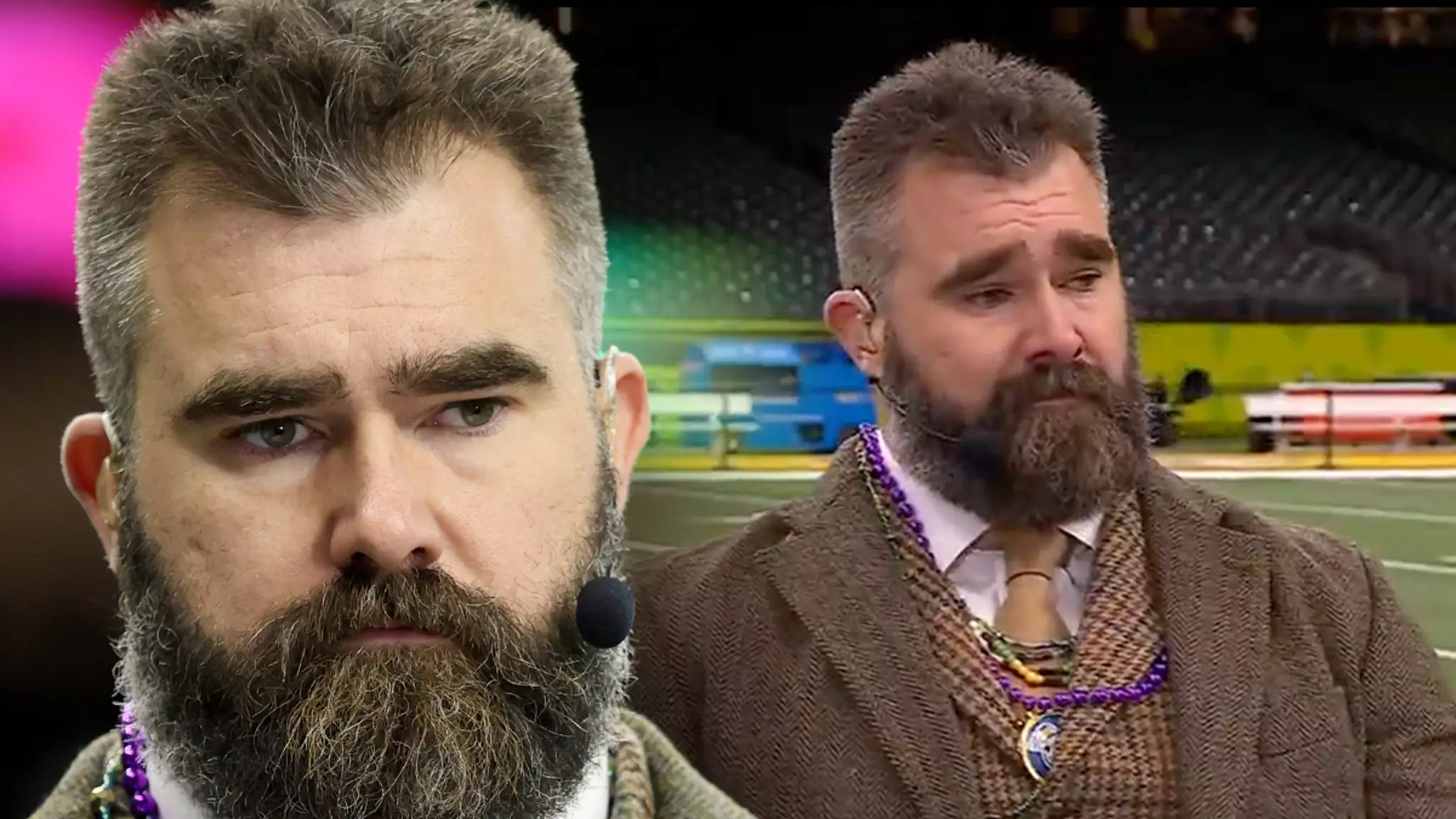In a poignant moment prior to the highly anticipated Super Bowl matchup between the Philadelphia Eagles and the Kansas City Chiefs, NFL star Jason Kelce openly expressed his emotions regarding the tragic victims of a recent terrorist attack in New Orleans. This touching incident unfolded during an ESPN feature that showcased the story of Ryan Quigley, a dedicated Eagles fan whose life was irrevocably changed by a devastating event that occurred on New Year’s Day. As the broadcast presented Quigley’s experience with heartfelt sincerity, it served not only as a tribute to those affected but also as a reminder of the fragility of life and the enduring spirit of community.
Ryan Quigley was enjoying an evening out with his friend, Tiger Bech, when a senseless act of violence intruded upon their lives. A man drove his pickup truck recklessly through a bustling crowd on Bourbon Street, leading to Bech’s untimely death and leaving Quigley with significant physical injuries that altered his daily life. Initially, Quigley vowed to never return to the city, grappling with the trauma of that night and the loss of his friend. However, the Eagles organization reached out to him, offering tickets to the Super Bowl in New Orleans—a gesture that not only honored Bech’s memory but also reignited Quigley’s bond with the Eagles, a team that was dear to both friends.
The moment that captured Kelce’s heart—and the hearts of many viewers—occurred as Quigley prepared to attend the Super Bowl, albeit on crutches. Faced with the footage, which revealed the inner strength of a man reclaiming joy amid adversity, Kelce was visibly moved. The 37-year-old former Eagles center required a moment to compose himself before he could continue speaking. Through his tears, he reflected on Quigley’s resilience and the beauty inherent in his journey of recovery. “On one end, something terrible can happen, and on the other, something so beautiful can happen,” Kelce eloquently remarked, underscoring the dichotomy of suffering and healing.
As the Eagles prepared for their game, Quigley and other victims of the attack were set to be honored on the field, symbolizing not only their individual hardships but also a collective strength that unites communities, particularly in times of tragedy. This acknowledgment served as a reminder that life can be both harsh and joyful, and that even in the darkest times, people can rise together.
In celebrating both the athletes on the field and the fans who support them, including resilient individuals like Quigley, the Super Bowl brought to the forefront an unyielding spirit of unity and hope. Indeed, amidst the backdrop of sporting triumph, it was moments like these that transformed the event into something more profound—a celebration of life, memory, and the power of love in overcoming adversity. In a world filled with uncertainty, let this be a lesson that grace and courage exist, even in the aftermath of unimaginable loss.

Leave a Reply